Game On and Boost Profits: Unveiling the Best Gaming Dropshipping Products!
To thrive in the gaming dropshipping, aspiring entrepreneurs must approach this venture with dedication and a keen eye on the latest gaming developments. By doing so, they can join the ranks of those who have successfully combined their passion for gaming with a thriving online business, ultimately leveling up their sales and profits in the gaming world.
What is Gaming Dropshipping:
Gaming dropshipping is a business model where individuals or companies sell gaming-related products to customers without actually holding inventory. Instead, they partner with suppliers or wholesalers who stock and ship the products directly to the customers on the retailer’s behalf. In this case, the retailer doesn’t own the products or has to deal with the storage and shipping logistics. This business model allows entrepreneurs to enter the gaming niche without the upfront costs and risks of traditional retail.
Why gaming Dropshipping is a Profitable Business Model?

Gaming dropshipping can be a profitable business model for several reasons:
- No Inventory Management: With gaming dropshipping, you don’t have to worry about inventory management, storage costs, or the risk of unsold products. This frees up your time and resources to focus on other aspects of your business.
- Wide Product Range: The gaming niche offers a broad range of products, including gaming consoles, accessories, collectibles, and in-game items. This diversity allows you to cater to various customer preferences and tap into niche markets.
- Reduced Risk: Since you only purchase products from suppliers when you’ve already made a sale, you’re not exposed to the risk of holding onto unsold merchandise. This can be particularly advantageous in the gaming industry, where product popularity can be fickle and subject to trends.
- Flexible Location: Gaming dropshipping can be managed from anywhere with an internet connection, offering flexibility for entrepreneurs who prefer to work remotely or internationally.
- Marketing Opportunities: The gaming industry has a dedicated and engaged customer base. Effective marketing and targeted advertising can help you reach a passionate audience, driving more sales and repeat business.
- Specialization: By focusing on a specific gaming niche or product category, you can establish your expertise and authority, making your store more appealing to gamers looking for specialized products and information.
- Technology and Trends: The gaming industry is continually evolving, with new consoles, games, and accessories being released regularly. This creates a constant stream of new products and opportunities to stay updated with trends.
While gaming dropshipping offers numerous advantages, it’s important to note that success in this business model is only sometimes guaranteed. Competition can be fierce, and you need to provide excellent customer service, build a reliable network of suppliers, and effectively market your products to stand out in the market. Additionally, maintaining quality control and staying up-to-date with gaming trends is essential to ensure customer satisfaction and long-term success.
Statistics on the Profitability of the Gaming Business

Here’s a trend analysis based on the provided gaming industry statistics for 2024:
- Gaming Industry Revenue Growth: The gaming industry is continuing its strong growth trajectory, with a projected revenue of $365.6 billion in 2024. This represents a consistent upward trend, driven by factors such as the expansion of the gaming market and the increasing popularity of gaming across various platforms.
- Video Game Sector Dominance: The video game sector is a dominant force within the gaming industry, accounting for an estimated $214.2 billion in 2024. This indicates the sustained growth and significance of video games in the entertainment sector.
- Content Revenue Fluctuations: The video game content revenue experienced a slight decline in 2022, dropping from $50.83 billion in 2021 to $47.48 billion. This fluctuation might be attributed to various factors, such as changing consumer preferences, the release timing of significant titles, or market saturation.
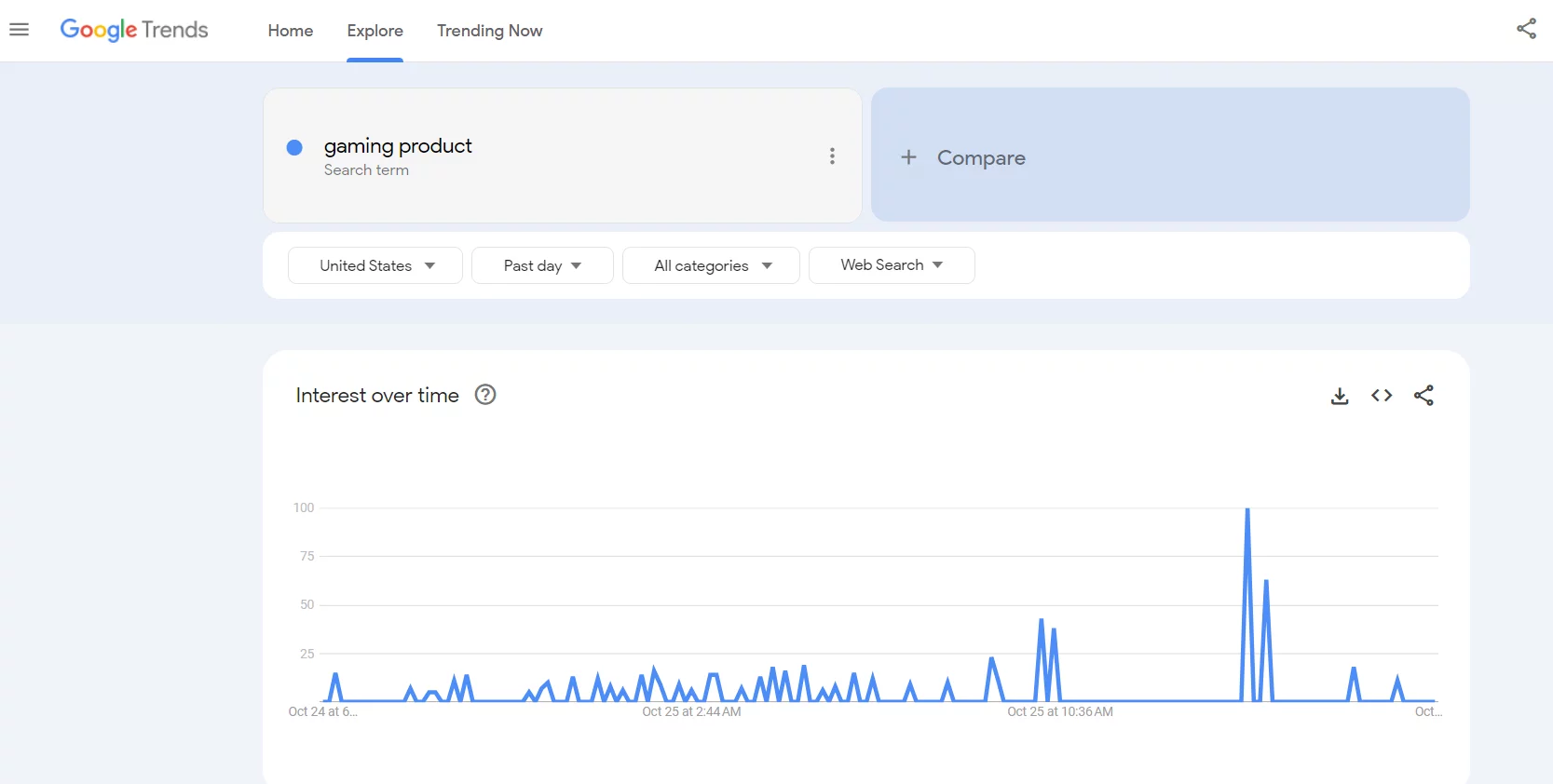
Overall, the gaming industry remains robust, but specific segments like video game content revenue can experience variations year-to-year. Continuous market analysis and adaptation to changing trends are essential for businesses operating within this industry to maintain profitability and relevance.
Best Gaming Products for Dropshipping
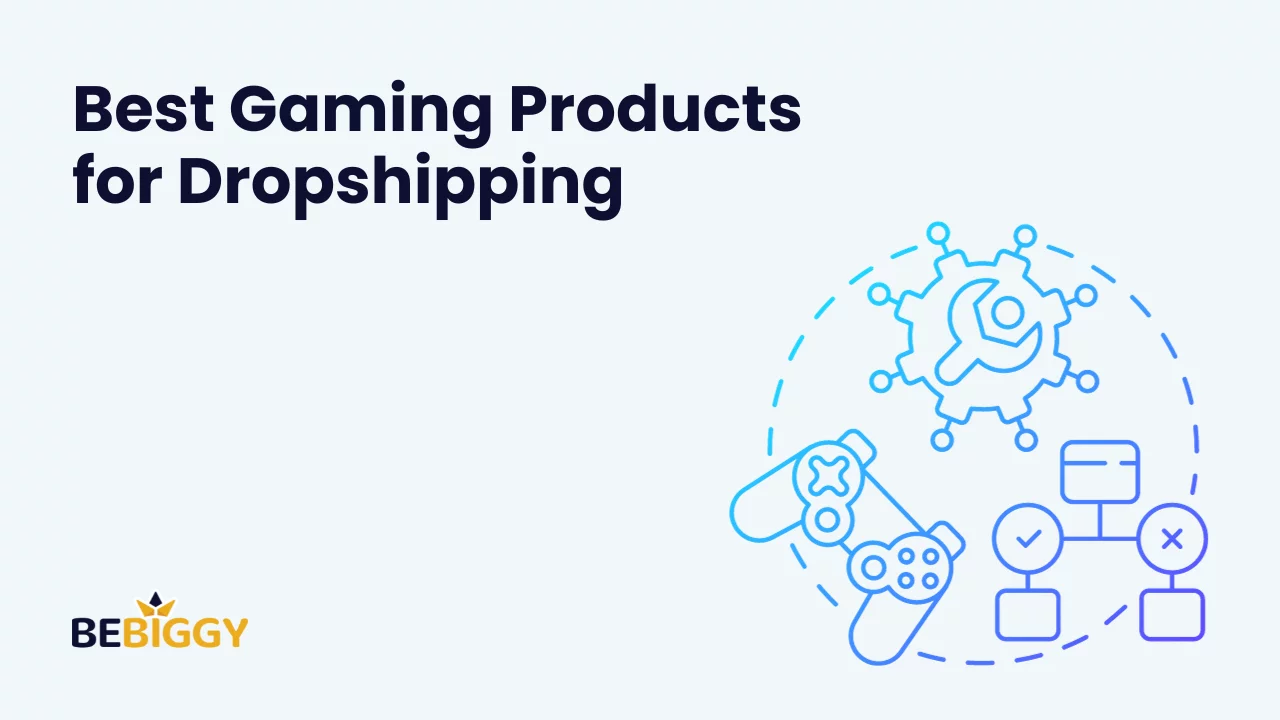
Choosing the best gaming products for dropshipping depends on factors such as market demand, trends, your target audience, and your ability to source reliable suppliers. Here are some popular gaming products that can be considered for dropshipping:
Gaming Accessories:
- Controllers, headsets, keyboards, and mice.
- Mouse pads, gaming chairs, and ergonomic gaming furniture.
- Cable management solutions and gaming desk setups.
Console and PC Games:
- Digital game keys and codes for popular gaming platforms.
- Classic and limited edition game releases.
Gaming Merchandise:
- T-shirts, hoodies, and other clothing with gaming-related designs.
- Posters, wall art, and collectibles featuring game characters.
- Gaming-themed home decor, including lamps, cushions, and rugs.
Gaming Hardware:
- Graphics cards, CPUs, and other PC gaming components.
- Gaming monitors, high-refresh-rate displays, and curved screens.
- Gaming laptops and accessories for mobile gaming.
Gaming Peripherals:
- High-quality gaming mice, mechanical keyboards, and premium gaming headsets.
- Gaming-specific webcams, microphones, and streaming equipment.
Virtual Reality (VR) Accessories:
- VR headsets, controllers, and sensors.
- VR game titles and experiences.
- VR-related gadgets, like haptic feedback devices.
Gaming Console Accessories:
- Skins, decals, and protective cases for gaming consoles.
- Charging docks and stands for consoles and controllers.
Gaming Software and In-Game Items:
- Game software, expansion packs, and downloadable content (DLC).
- In-game currency, skins, and virtual items for popular games.
- Game subscription services like Xbox Game Pass or PlayStation Plus.
Esports and Team Merchandise:
- Merchandise from popular esports teams, including jerseys, hats, and branded items.
- Sponsorship opportunities with local esports organizations.
Retro Gaming:
- Retro gaming consoles and emulators.
- Vintage video games, controllers, and accessories.
It’s essential to research market demand and competition for specific gaming products before deciding which ones to dropship. Additionally, establish reliable supplier relationships to ensure product quality and timely shipping. Keep in mind that the gaming industry is dynamic, so staying updated with trends and adapting to changing preferences is crucial for success in gaming dropshipping.
Detailed breakdown for each type of dropshipping gaming product
1. Gaming Accessories:
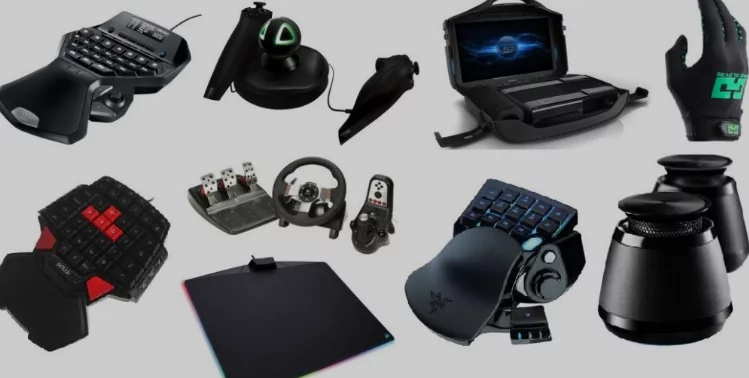
Key Points:
- Gaming accessories enhance the gaming experience by providing better control, comfort, and functionality.
- These products often include controllers, headsets, keyboards, mice, and other peripherals.
- Accessories can be platform-specific (e.g., Xbox controllers) or compatible with various gaming systems.
Features:
- Ergonomic designs for comfortable and prolonged use.
- Customizable lighting and programmable buttons.
- Compatibility with PCs, consoles, and mobile devices.
- High-quality audio and microphone options in gaming headsets.
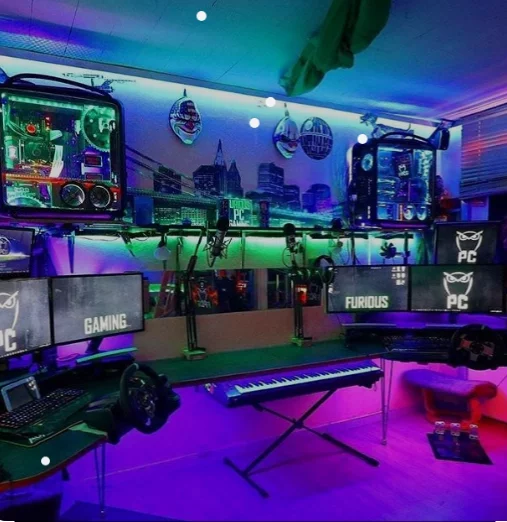
Benefits:
- Improved gaming performance and comfort.
- Enhanced immersion through high-quality audio.
- Customization options for personalized gaming setups.
- Compatibility across multiple gaming platforms.
Examples:
- Xbox Wireless Controller for Xbox and PC.
- Razer BlackWidow Elite Mechanical Gaming Keyboard.
- Logitech G Pro X Wireless Gaming Headset.
2. Console and PC Games:
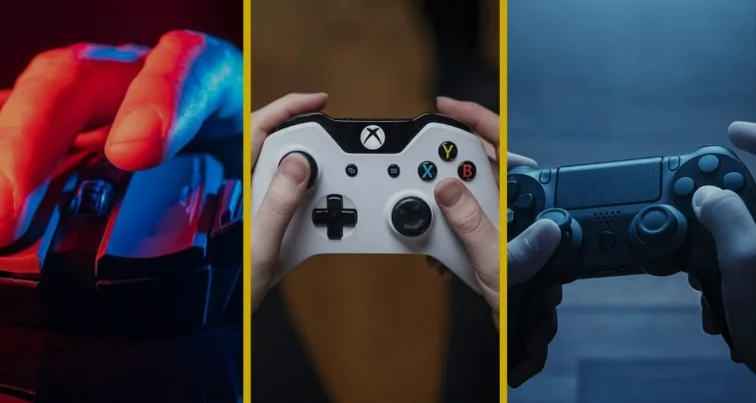
Key Points:
- Selling digital game keys or codes for popular gaming platforms.
- Offering classic or limited edition game releases.
Features:
- Access to the latest game titles and exclusive content.
- Instant delivery of digital codes to customers.
- Pre-order options for upcoming game releases.
Benefits:
- Immediate access to games without waiting for physical delivery.
- Offering limited editions or collector’s editions can attract dedicated fans.
- A range of titles to cater to various gaming preferences.
Examples:
- Selling Steam, PlayStation, or Xbox game keys.
- Offering pre-orders for highly anticipated game releases.
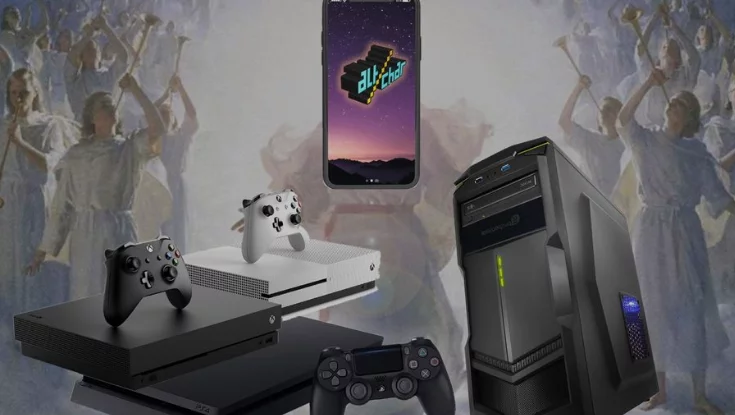
3. Gaming Merchandise:
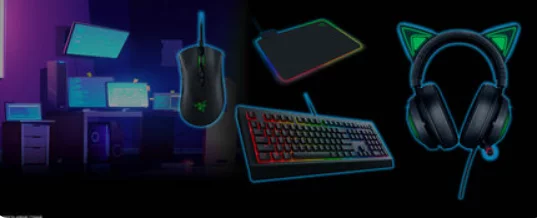
Key Points:
- Selling merchandise such as clothing, posters, and home decor with gaming-related designs.
- Aiming at the gaming community and fans of specific games.
Features:
- High-quality prints and materials for merchandise.
- A variety of designs based on popular game franchises.
- Clothing options include t-shirts, hoodies, and accessories.
Benefits:
- Appeals to a broad audience of gaming enthusiasts.
- Merchandise can serve as collectibles or gifts for gamers.
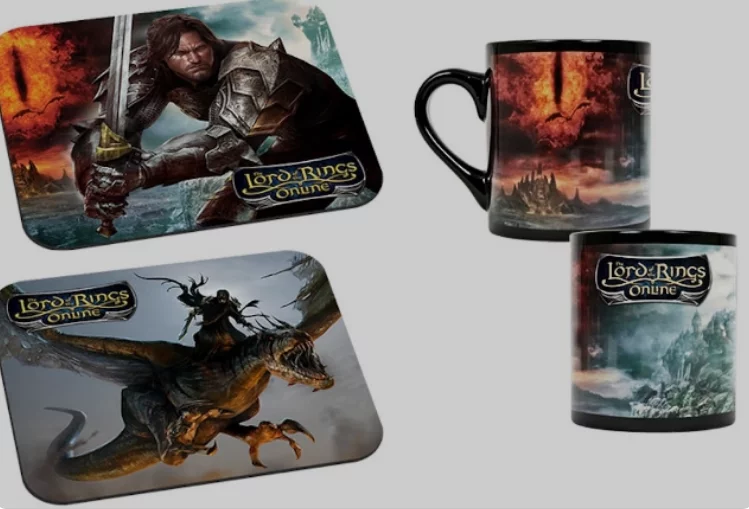
Examples:
- T-shirts with iconic game character prints.
- Posters featuring artwork from popular video games.
- Gaming-themed home decor, like LED lamps or throw pillows.
4. Gaming Hardware:
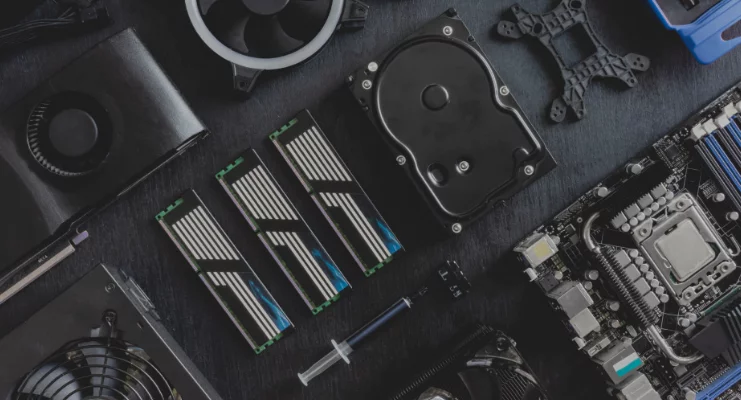
Key Points:
- Offering gaming hardware components, such as graphics cards and CPUs.
- Catering to PC gaming enthusiasts looking to upgrade or build gaming rigs.
Features:
- High-performance components for gaming rigs.
- Compatibility with various gaming setups and configurations.
- Advanced features like real-time ray tracing for graphics cards.
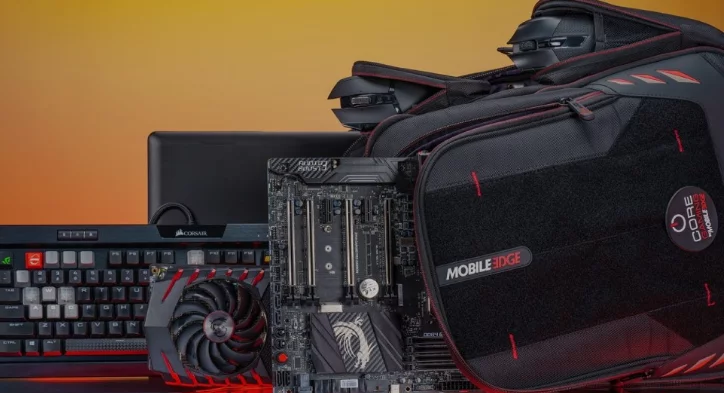
Benefits:
- Provides gamers with the latest technology for high-quality gaming experiences.
- Customization options for building powerful gaming PCs.
- Opportunities to target PC gamers interested in upgrades.
Examples:
- NVIDIA GeForce RTX 3080 Graphics Card.
- AMD Ryzen 7 5800X CPU for gaming PCs.
5. Gaming Peripherals:
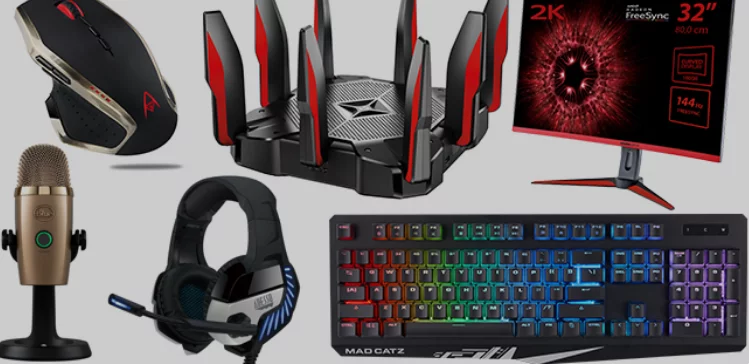
Key Points:
- Offering high-quality gaming mice, mechanical keyboards, and premium gaming headsets.
- These peripherals enhance the precision and comfort of gaming setups.
Features:
- Responsive and accurate sensors in gaming mice.
- Durable mechanical switches in gaming keyboards.
- Immersive sound quality and noise-cancellation in headsets.
Benefits:
- Enhanced gaming performance and responsiveness.
- Durable products designed for prolonged use.
- Improved communication and immersion in multiplayer games.
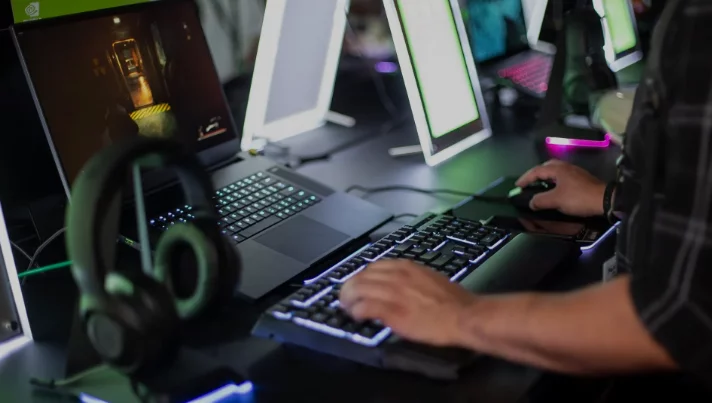
Examples:
- Logitech G Pro Wireless Gaming Mouse.
- Corsair K95 RGB Platinum XT Mechanical Gaming Keyboard.
- SteelSeries Arctis Pro Wireless Gaming Headset.
6. Virtual Reality (VR) Accessories:
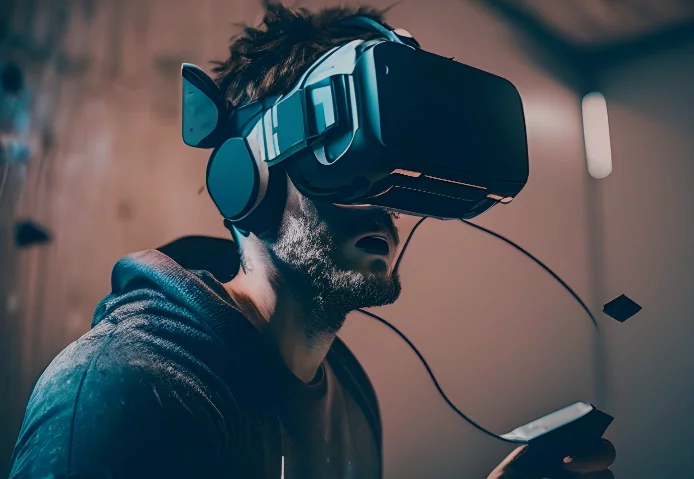
Key Points:
- Catering to the growing market of virtual reality gaming.
- Offering accessories such as VR headsets, controllers, and sensors.
Features:
- High-resolution displays and comfortable designs in VR headsets.
- Precise motion tracking and haptic feedback in VR controllers.
- Easy setup and compatibility with VR-ready PCs.
Benefits:
- Access to the immersive world of virtual reality gaming.
- Expanding into a growing and innovative gaming niche.
- Opportunities to sell accessories and add-ons for VR setups.
Examples:
- Oculus Quest 2 All-in-One VR Headset.
- Valve Index VR Controller.
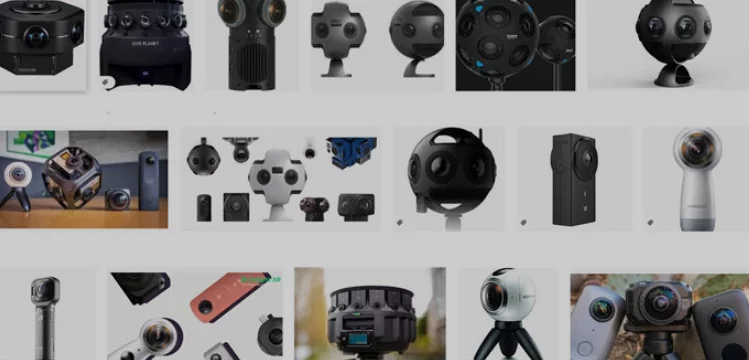
7. Nintendo Console Accessories:
Key Points:
- Selling products that enhance gaming consoles, such as skins, decals, and protective cases.
- Catering to console gamers looking to customize and protect their devices.
Features:
- Custom designs and graphics for console skins.
- Protective cases are made from durable materials.
- Easy application and removal of skins and decals.
Benefits:
- Personalization and protection for gaming consoles.
- Opportunities to offer unique and branded designs.
- Easy and non-permanent customization options.
Examples:
- PlayStation 5 Console Skin.
- Nintendo Switch Protective Case.
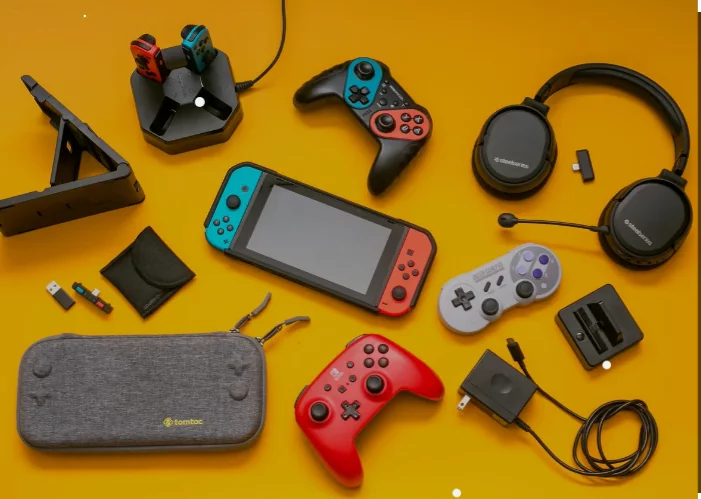
8. Gaming Software and In-Game Items:
Key Points:
- Selling digital game software, expansion packs, and downloadable content (DLC).
- Offering in-game currency, skins, and virtual items for popular games.
Features:
- Instant delivery of digital game content.
- Various in-game items, including character skins and cosmetics.
- Opportunities for bulk purchases and discounts.
Benefits:
- Immediate access to game content and enhancements.
- Customization options and progression boosts in popular games.
- Attracting gamers seeking in-game advantages and aesthetics.
Examples:
- Offering Fortnite V-Bucks.
- Selling DLC and expansion packs for titles like “The Elder Scrolls V: Skyrim.
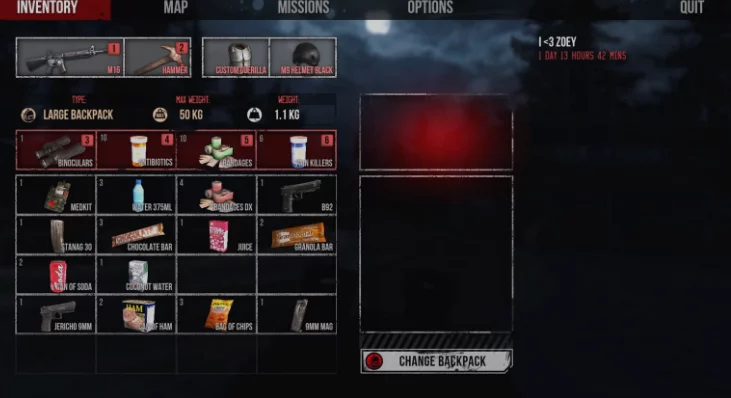
9. Esports and Team Merchandise:
Key Points:
- Selling merchandise from popular esports teams, including jerseys, hats, and branded items.
- Capitalizing on the growing esports industry and fan base.
Features:
- Official merchandise from well-known esports teams.
- Various products, including team jerseys and accessories.
- Sponsorship and branding opportunities with local esports organizations.
Benefits:
- Access to a dedicated and passionate esports fan base.
- Opportunities to partner with and promote local or global esports teams.
- Merchandise serves as a way for fans to show their support.
Examples:
- Selling jerseys and caps from renowned esports teams like Team Liquid or Cloud9.
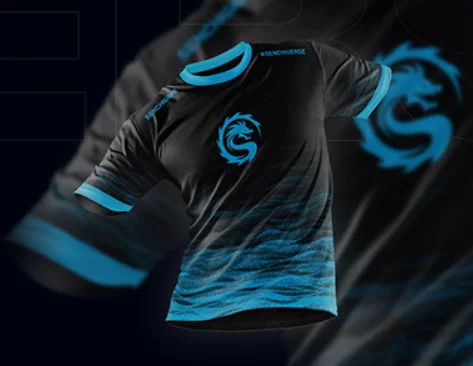
10. Retro Gaming:

Key Points:
- Catering to the nostalgia and interest in classic and retro gaming.
- Offering retro gaming consoles, emulators, and vintage video games.
Features:
- Consoles or emulators that can play traditional game cartridges.
- A collection of vintage game titles from various platforms.
- Products with a focus on retro design and aesthetics.
Benefits:
- Attracting gamers looking to relive classic gaming experiences.
- Potential for unique and niche offerings in the gaming market.
- Serving collectors and enthusiasts interested in retro gaming.
Examples:
- Selling a reissued version of the original Nintendo Entertainment System (NES).
- Offering vintage game cartridges for systems like the Super Nintendo or Sega Genesis.
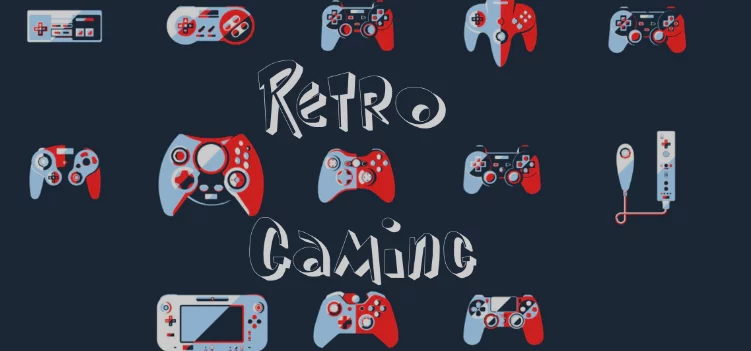
When choosing gaming products for dropshipping, it’s essential to conduct market research, consider your target audience, and identify reliable suppliers. By offering high-quality and relevant gaming products, you can tap into the lucrative gaming market and build a successful dropshipping business.
Top Gaming Dropshipping Products Suppliers
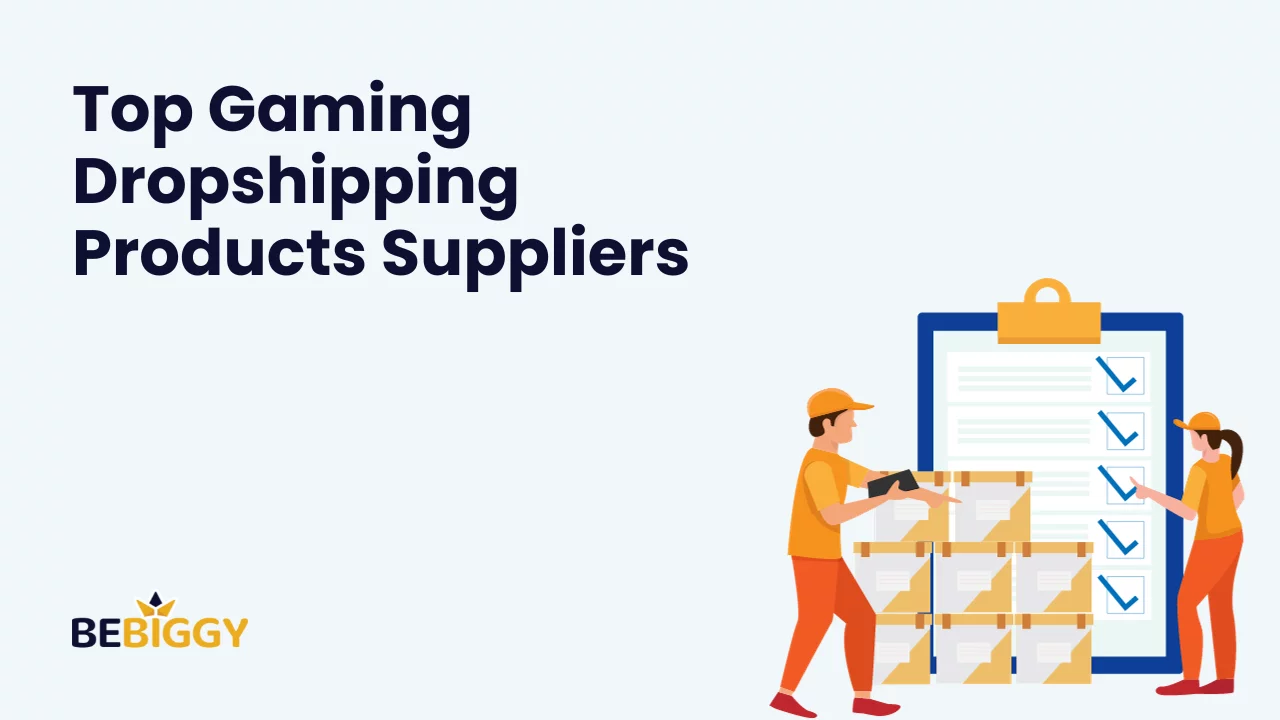
Dropshipping is a popular business model in the gaming industry, allowing entrepreneurs to sell gaming-related products without holding inventory. When searching for gaming dropshipping suppliers, it’s essential to find reliable and reputable companies to ensure the quality of products and timely delivery. Here are some gaming dropshipping product suppliers you can consider:
- SaleHoo: SaleHoo is a directory of wholesalers and dropshippers, including those in the gaming niche. They have a vetting process for their suppliers to ensure their legitimacy and reliability.
- Doba: Doba is a dropshipping platform that offers a wide range of gaming-related products. They provide product data and integration with popular eCommerce platforms like Shopify.
- Worldwide Brands: This is another directory of certified wholesalers and dropshippers. They have a comprehensive list of gaming-related suppliers.
- AliExpress: AliExpress is a marketplace with numerous suppliers offering gaming accessories, consoles, and more. It’s essential to research and select reliable sellers with good reviews.
- Wholesale2b: Wholesale2b offers access to various gaming dropshipping suppliers. They provide integration with popular eCommerce platforms and automation tools.
- BigBuy: BigBuy is a European dropshipping supplier with a selection of gaming products, including video games, consoles, and accessories. They have an API for integration.
- Gaming Dropshippers: This is a specialized dropshipping supplier focusing exclusively on gaming-related products. They offer various gaming items, from consoles to peripherals.
- Banggood: Banggood offers a wide range of consumer electronics and gaming products. They have a dropshipping program and ship products worldwide.
- GearBest: GearBest is another online marketplace that provides gaming products suitable for dropshipping. They have a global reach and offer competitive prices.
- TradeGecko: TradeGecko is an inventory management and order fulfillment platform that can connect you with gaming-related dropshipping suppliers. It’s suitable for more established businesses.
When choosing a gaming dropshipping supplier, be sure to:
- Check their reputation and reviews.
- Research their product quality and pricing.
- Inquire about their shipping times and costs.
- Understand their return and refund policies.
- Confirm whether they provide product data and integration options.
It’s essential to thoroughly research and test a few suppliers to find the one that best aligns with your business needs and goals. Additionally, the gaming niche is vast, so consider narrowing down your focus to specific gaming products or categories to target a particular audience effectively.
Trends and highlights

Here are some trends and highlights in the gaming industry for 2024:
- Growth in Mobile Gaming: Mobile gaming continues to be a dominant force, with a growing number of gamers playing on smartphones and tablets. The availability of high-quality mobile games and the convenience of on-the-go gaming are driving this trend.
- Metaverse and Virtual Reality (VR): The concept of the metaverse and virtual reality gaming is gaining momentum. Companies are investing in VR technology, creating immersive gaming experiences, and exploring the potential of interconnected virtual worlds.
- Cloud Gaming Services: Cloud gaming services are on the rise, allowing gamers to stream and play high-end games on various devices without the need for powerful gaming hardware. This trend is making gaming more accessible to a broader audience.
- E-Sports and Competitive Gaming: Esports continues to grow as a spectator sport and a lucrative industry. Major tournaments, professional players, and esports organizations are attracting significant investments and viewership.
- In-Game NFTs and Blockchain: Non-fungible tokens (NFTs) and blockchain technology are being integrated into gaming, enabling the creation of unique in-game assets and digital collectibles. This trend is reshaping the gaming economy.
- Sustainability and Eco-Friendly Initiatives: Some gaming companies are focusing on sustainability and eco-friendly practices, both in the production of gaming hardware and in-game experiences.
- Cross-Platform Play: Cross-platform gaming is becoming more common, allowing players on different consoles and platforms to play together. This trend promotes inclusivity and community building.
- Live Services and Subscription Models: Game publishers are increasingly adopting live service models and subscription-based offerings, providing ongoing content updates and access to a library of games for a monthly fee.
- AI and Machine Learning: AI and machine learning are being used to enhance gaming experiences, from character behaviors to procedural content generation. These technologies improve game realism and adaptability.
- Regulatory and Ethical Concerns: As the gaming industry continues to grow, concerns related to loot boxes, addiction, and the impact of violent or addictive content on players are being addressed by regulators and industry stakeholders.
Steps to get started:
Getting started in the gaming industry, whether as a gamer, game developer, or entrepreneur, involves several key steps. Here’s a general roadmap to help you begin your journey:
- Define Your Area of Interest:
- Determine your interest in the gaming industry, whether it’s playing games, game development, esports, or another aspect.
- Research and Education:
- Study and learn about the gaming industry, including current trends, key players, and opportunities. If you’re interested in game development, consider learning programming languages and game design principles.
- Networking:
- Connect with others in the gaming community. Attend gaming events, join online forums, and engage with professionals who share your interests. Networking can lead to valuable insights and opportunities.
- Choose Your Path:
- Depending on your interests, decide whether you want to become a gamer, a game developer, a content creator, or a business owner (e.g., starting a gaming-related venture).
- Gaming as a Gamer:
- Suppose you want to be a professional gamer, practice, and improve your gaming skills. Consider joining esports teams, competing in tournaments, and building a presence on gaming platforms like Twitch or YouTube.
- Game Development:
- If you’re interested in game development, start by learning game engines (e.g., Unity, Unreal Engine), programming languages (e.g., C++, C#, Python), and game design principles. Create your games or join a development team.
- Content Creation:
- Invest in quality recording and streaming equipment if you’re into content creation.
- Business Ventures:
- If you want to start a gaming-related business, identify your niche (e.g., gaming accessories, esports events, game streaming services) and create a business plan. Consider factors like target audience, funding, and marketing.
- Legal and Regulatory Considerations:
- Be aware of regulatory considerations related to the gaming industry. Depending on your venture, you might need to deal with intellectual property, licensing, or compliance issues.
- Monetization Strategies:
- Determine how you’ll monetize your involvement in the gaming industry, whether it’s through sponsorships, advertisements, game sales, merchandise, or other revenue streams.
- Build a Portfolio or Resume:
- As you gain experience in your chosen field, whether it’s gaming, development, or content creation, create a portfolio or resume to showcase your skills and accomplishments.
- Take Risks and Be Persistent:
- The gaming industry can be highly competitive. Be prepared to take risks, learn from failures, and persist in pursuing your goals.
Is gaming Dropshipping Worth it?
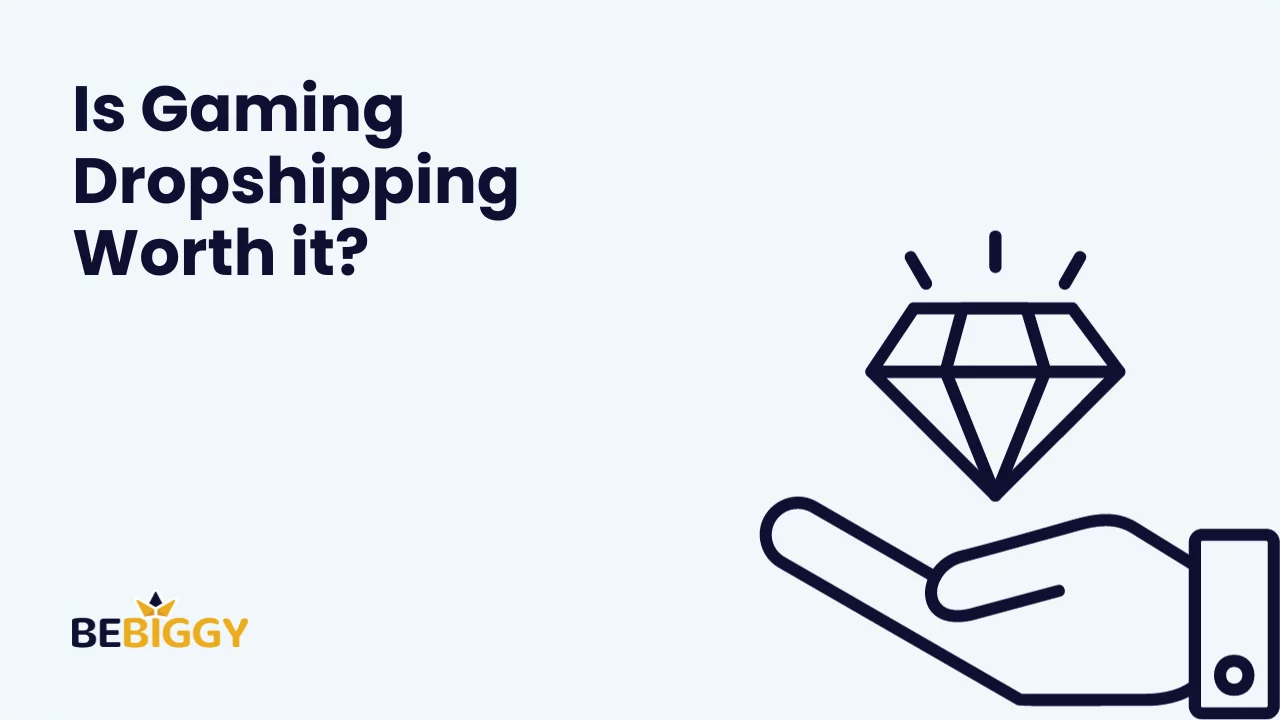
Whether gaming dropshipping is worth pursuing depends on several factors, including your business goals, experience, and ability to adapt to the challenges and opportunities in the gaming industry.
Here are some considerations to help you decide if gaming dropshipping is a worthwhile venture:
Pros of Gaming Dropshipping:
- Low Startup Costs: You don’t need to invest in inventory, warehousing, or shipping, reducing your initial capital requirements.
- Diverse Product Range: The gaming niche offers a wide variety of products catering to different tastes and preferences, which can help you reach a broad audience.
- Scalability: Dropshipping allows for easy scaling. You can add new products or expand into related gaming niches as your business grows.
- Global Market: The gaming industry has a global audience, giving you access to a large and diverse customer base.
- Reduced Risk: Since you only purchase products after making a sale, you’re not stuck with unsold inventory, reducing financial risk.
Cons of Gaming Dropshipping:
- Competition: The gaming market is highly competitive, with many dropshippers and established retailers. Standing out can be challenging.
- Supplier Reliability: Your success depends on your suppliers’ ability to provide quality products and reliable shipping. Unreliable suppliers can harm your reputation.
- Profit Margins: While dropshipping can offer low upfront costs, profit margins can be thin, as you must compete on price. Marketing and operational expenses can eat into your profits.
- Quality Control: You need direct control over product quality, packaging, or shipping times, which can lead to customer satisfaction if issues arise.
- Changing Trends: The gaming industry is dynamic, with rapidly changing trends. Staying relevant and adapting to shifts in the market can be challenging.
Gaming dropshipping can be worth it for some entrepreneurs, especially those with a strong understanding of the gaming industry and effective marketing strategies. However, it’s challenging, and success in this field requires careful supplier selection, competitive pricing, and excellent customer service. Like any business venture, it’s essential to conduct thorough market research and business planning before deciding if gaming dropshipping aligns with your goals and resources.
Why Dropship gaming products?
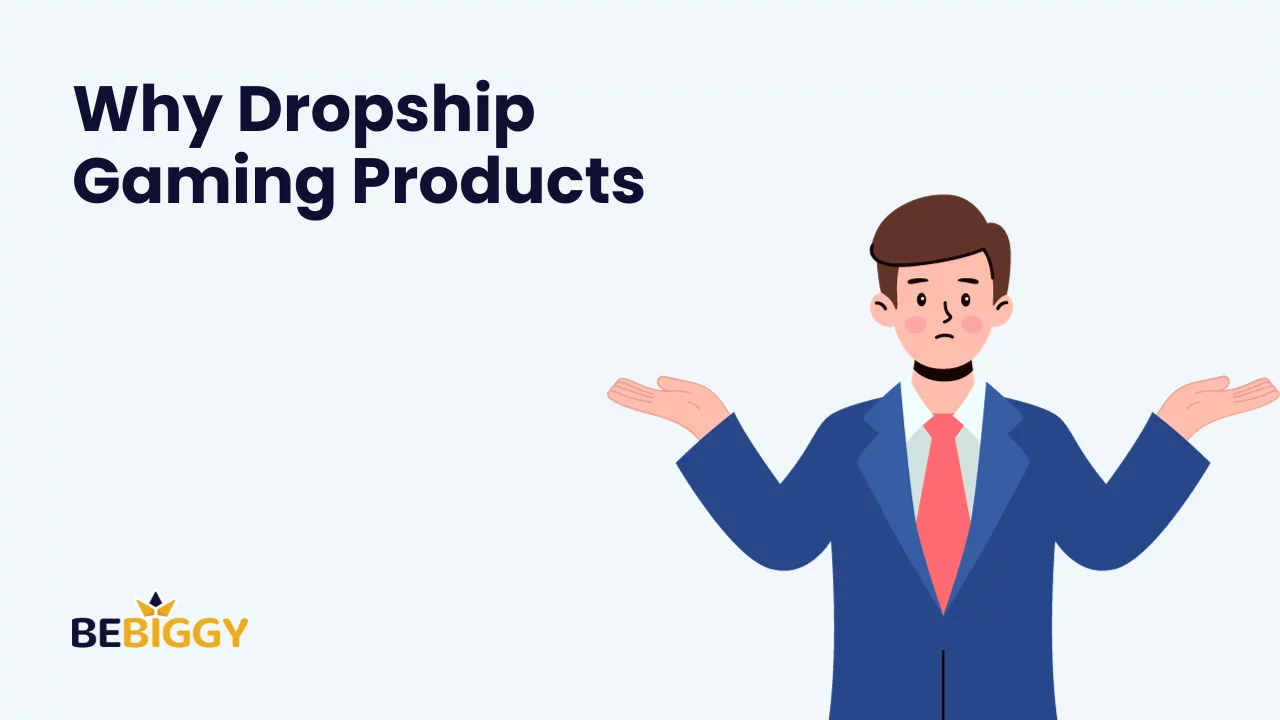
Dropshipping gaming products can be an attractive business model for several reasons:
- Low Startup Costs: One of the most significant advantages of dropshipping, including in the gaming niche, is that it requires minimal upfront investment. You don’t need to purchase and store inventory, which can save you a considerable amount of money compared to traditional retail businesses.
- No Inventory Management: With gaming dropshipping, you don’t have to worry about inventory management, storage costs, or the risk of unsold products. This frees up your time and resources to focus on other aspects of your business.
- Wide Product Range: The gaming niche offers a broad range of products, including gaming consoles, accessories, collectibles, and in-game items. This diversity allows you to cater to various customer preferences and tap into niche markets.
- Reduced Risk: Since you only purchase products from suppliers when you’ve already made a sale, you’re not exposed to the risk of holding onto unsold merchandise. This can be particularly advantageous in the gaming industry, where product popularity can be fickle and subject to trends.
- Flexible Location: Gaming dropshipping can be managed from anywhere with an internet connection, offering flexibility for entrepreneurs who prefer to work remotely or internationally.
- Marketing Opportunities: The gaming industry has a dedicated and engaged customer base. Effective marketing and targeted advertising can help you reach a passionate audience, driving more sales and repeat business.
- Specialization: By focusing on a specific gaming niche or product category, you can establish your expertise and authority, making your store more appealing to gamers looking for specialized products and information.
- Technology and Trends: The gaming industry is continually evolving, with new consoles, games, and accessories being released regularly. This creates a constant stream of new products and opportunities to stay updated with trends.
While gaming dropshipping offers numerous advantages, it’s important to note that success in this business model is only sometimes guaranteed. Competition can be fierce, and you need to provide excellent customer service, build a reliable network of suppliers, and effectively market your products to stand out in the market. Additionally, maintaining quality control and staying up-to-date with gaming trends is essential to ensure customer satisfaction and long-term success.
FAQ for Best Gaming Dropshipping Products

What is gaming dropshipping, and how does it work?
- Gaming dropshipping is a business model where entrepreneurs sell gaming-related products without holding inventory.
- Suppliers handle the storage and shipping of products on behalf of the retailer.
Why choose gaming dropshipping over traditional retail?
- Minimal upfront investment is required.
- There is no need to purchase or store inventory.
- Offers a wide range of gaming products.
- Scalable business model.
- Global reach.
- Reduced risk as products are purchased only after a sale is made.
How do I find reliable suppliers for gaming dropshipping?
- Use platforms like Oberlo, SaleHoo, Doba, Alibaba, and more.
- Research and evaluate suppliers based on product quality, shipping times, and customer service.
- Verify supplier credentials and reviews before partnering with them.
What are the challenges in gaming dropshipping, and how can I overcome them?
- Challenges include fierce competition, supplier reliability, thin profit margins, customer service responsibilities, and changing industry trends.
- Overcome challenges by focusing on effective marketing, excellent customer service, staying updated with gaming trends, and building a solid network of reliable suppliers.
Is gaming dropshipping worth it, considering the competition in the market?
- Conducting thorough market research, choosing a specific niche, offering quality products, and providing exceptional customer service is worth it.
- Success requires dedication, adapting to trends, and building a strong brand presence within the gaming community.
Conclusion:
Gaming dropshipping presents an exciting and profitable opportunity for entrepreneurs looking to dive into the dynamic world of gaming. This business model’s advantages, including low startup costs, wide product range, scalability, and a global reach, make it an appealing choice for those passionate about gaming and eager to tap into this thriving industry.

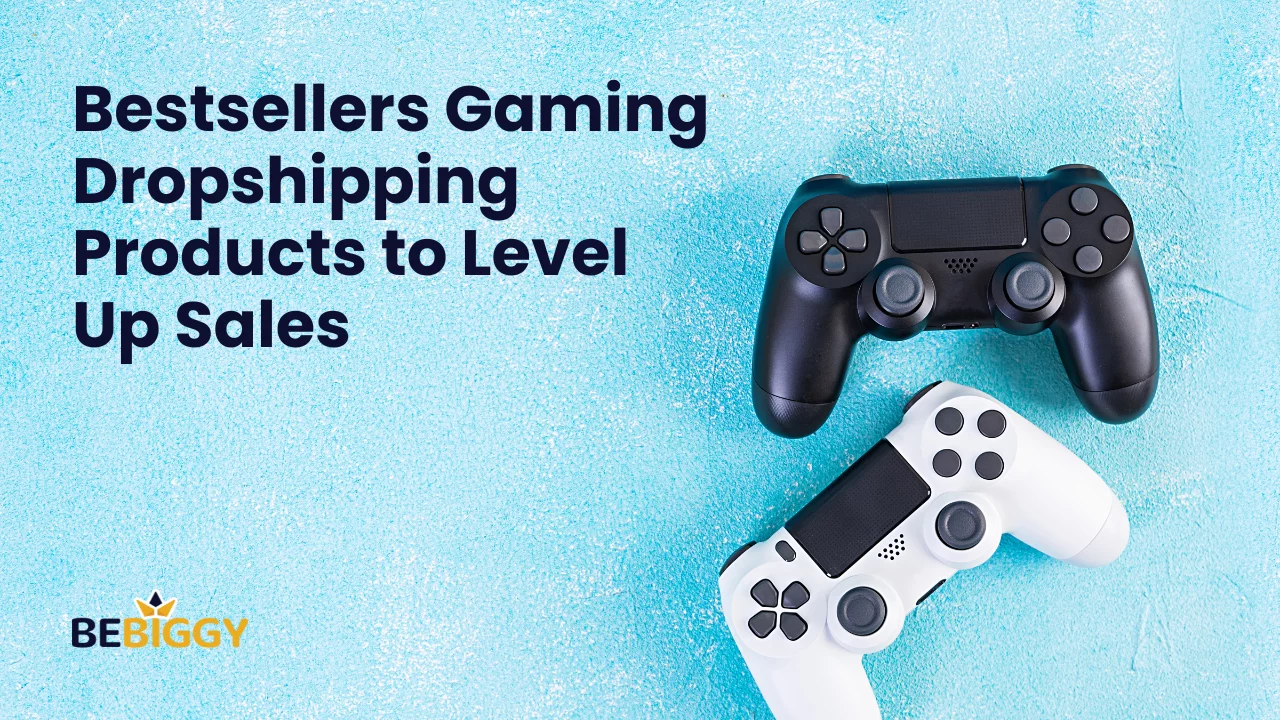









 What Is Shopify Dropshipping and How Does It Work?
What Is Shopify Dropshipping and How Does It Work? 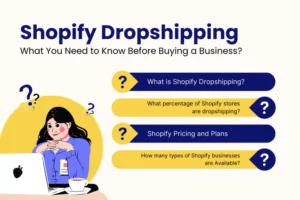 Shopify Dropshipping: What You Need to Know Before Buying a Business?
Shopify Dropshipping: What You Need to Know Before Buying a Business?  How to Dropship on Shopify: Step-by-Step Guide
How to Dropship on Shopify: Step-by-Step Guide  Guide to Finding Reliable Shopify Dropshipping Suppliers [100% Success]
Guide to Finding Reliable Shopify Dropshipping Suppliers [100% Success]